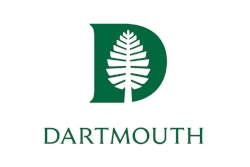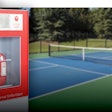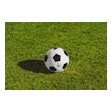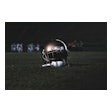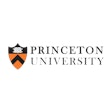Copyright 2017 Gannett Company, Inc.
All Rights Reserved
USA TODAY
Fans of English Premier League giant Manchester United have been told their safety will be guaranteed this week when they visit Rostov, Russia.
As long as they stick to two streets in the city.
And don't wear any club colors.
And don't go anywhere alone.
The message, sent by United's head of ticketing Sam Kelleher in a letter to the 238 fans making the journey for Thursday's Europa League Round of 16 clash against FC Rostov, is clear.
Ignore the suggestions, and you're putting your personal well-being in jeopardy.
"For your safety and security you are advised not to wear Manchester United (colors) when in Rostov, or attract attention to you presence in the city," Kelleher wrote. "It is also advised you stay in groups where possible, and do not walk around the city alone.
"It is not just opposition football fans who may potentially pose a risk to your safety, and incidents of serious disorder during the European Championships in France last summer, involving violent individuals and groups emanating from Eastern Europe, should be remembered when considering your movements and actions, and any potential risk."
The reason for the edict is the growing scourge of soccer-related hooliganism in Russia, where gangs of antagonists continue to proliferate just 15 months before the country hosts the FIFA World Cup.
Officials from three national soccer federations contacted by USA TODAY Sports this week said hooliganism likely will cause them to take special measures including receiving government advice during the tournament next summer. The officials requested anonymity because of the sensitivity of the issue.
And if their nation were to face Russia after the draw is announced this year?
"It would be a logistical headache of epic proportions," one official said. "No one missed (noticing) what happened last summer."
During last year's European Championship in France, there were ugly scenes that soccer officials hoped would go no further. While hooliganism was a huge problem in the 1980s, especially in England, it was largely stamped out over the two decades that followed.
However, it has re-emerged stronger than ever in Eastern Europe, where highly organized Russian groups with links to organized crime and with martial arts training align themselves with both specific clubs and the Russian national team.
Clashes between English and Russian fans took place in Marseille during the Euros, causing Russia's soccer federation to be fined $158,000 and threatened with disqualification from the event.
The biggest concern is that Russia appears woefully unprepared for the World Cup.
As the tournament nears, the messages from Russia's political and sports hierarchy are far from positive.
Last week, Igor Lebedev, a senior politician who also sits on the board of the Russian Football Union, came up with the extraordinary proposal to turn hooligan-related fighting into a bizarre form of entertainment.
Lebedev published a plan on the website of the opposition Liberal Democratic party, suggesting that groups of 20 fans representing countries or teams take part in unarmed combat in an arena.
"Russia would be a pioneer in a new sport," Lebedev wrote. "(Soccer) fans arrive, for example, and start picking fights. And they get the answer -- challenge accepted. A meeting in a stadium at a set time."
Hooliganism has often been associated with racism, another area where Russian soccer has suffered from negative publicity. Countless reports of minority players being targeted have emerged in Russia over the last several years.
An extremist fan group from leading team Zenit St. Petersburg published an infamous "manifesto" warning club leaders not to sign black players.
Cameroon international Andrey Bikey told The Telegraph that he carried a gun while playing in Moscow amid fears for his safety.
Black players are routinely jeered by rival fans. In some instances, banana skins have been hurled in their direction.
Russian authorities appeared to take action this year, appointing a special commissioner to monitor and stamp out racist activity during the World Cup.
He is Alexei Smertin, a former international soccer player who represented several major European clubs and the Russian national team on 55 occasions.
A good choice perhaps, until it emerged that a few years back Smertin said that Russia -- despite its history of documented discrimination against ethnic minorities -- does not have a racism problem. Racism, according to Smertin, was a "fashion" that had been imported from overseas.
When black players were booed at soccer games, Smertin said, it was merely to try to distract them.
Welcome to Russia's World Cup, now a little more than a year away.
Read More of Today's AB Headlines
Subscribe to Our Daily E-Newsletter
Terms and Conditions Privacy Policy














